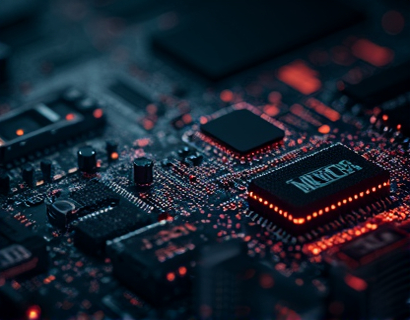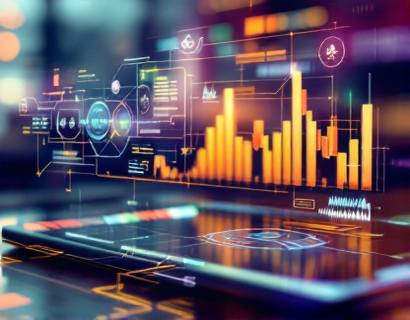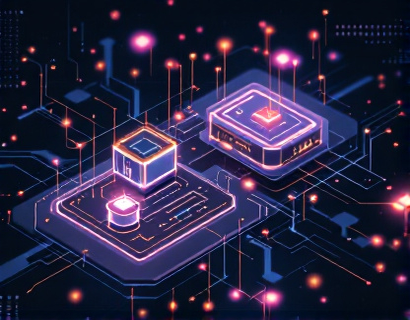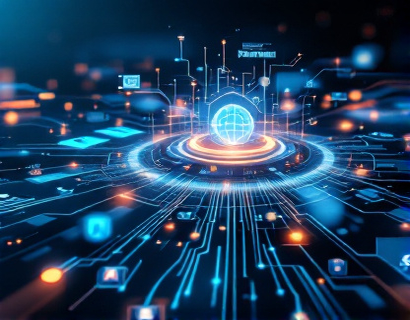Revolutionizing Productivity: The Synergy of Crypto and AI
The intersection of cryptocurrency and artificial intelligence (AI) is paving the way for unprecedented advancements in digital productivity tools. This synergy is not just a technological curiosity but a practical solution that enhances efficiency, security, and innovation for tech professionals and enthusiasts. As we delve into the latest tools and applications, it becomes clear that the combination of these two fields is redefining what is possible in the digital realm.
The adoption of blockchain technology, the backbone of cryptocurrency, brings a level of transparency, security, and decentralization that traditional systems lack. When paired with AI, which excels in data analysis, pattern recognition, and automation, the potential for creating robust and intelligent digital solutions is immense. This article aims to provide a comprehensive guide to these tools and applications, focusing on how they can maximize digital productivity and foster innovation.
Enhancing Security with Cryptographic Solutions
One of the primary benefits of integrating cryptocurrency into digital productivity tools is the enhanced security it offers. Cryptographic techniques ensure that data is protected from unauthorized access and tampering. For instance, blockchain-based storage solutions can store user data in a decentralized manner, making it extremely difficult for hackers to compromise. This is particularly crucial for businesses handling sensitive information, as it reduces the risk of data breaches and ensures compliance with regulatory standards.
Moreover, smart contracts, self-executing contracts with the terms directly written into code, can automate and enforce agreements without the need for intermediaries. This not only speeds up processes but also minimizes the potential for human error and fraud. In the context of productivity tools, smart contracts can be used to automate workflows, manage payments, and ensure that tasks are completed as per agreed terms.
AI-Driven Data Analysis and Insights
AI's strength lies in its ability to process and analyze vast amounts of data quickly and accurately. When applied to productivity tools, AI can provide deep insights that help users make informed decisions. For example, AI-powered project management tools can analyze historical project data to predict timelines, resource allocation, and potential bottlenecks. This predictive capability allows managers to proactively address issues, optimize resource usage, and improve overall project outcomes.
Additionally, AI-driven analytics can help in identifying trends and patterns in user behavior, enabling the customization of tools to better suit individual needs. This personalization enhances user experience and increases productivity by providing tailored recommendations and automating repetitive tasks. For instance, an AI assistant can learn a user's workflow and suggest optimal times for certain tasks based on past performance and current workload.
Decentralized Collaboration Platforms
The concept of decentralized collaboration platforms is a game-changer in the realm of digital productivity. These platforms leverage blockchain technology to create secure, transparent, and collaborative environments. Unlike traditional cloud-based services, which rely on centralized servers and are vulnerable to single points of failure, decentralized platforms distribute data across a network of nodes. This not only enhances security but also ensures high availability and resilience.
In these platforms, users can share files, collaborate on documents, and manage projects without the need for intermediaries. Blockchain-based reputation systems can further enhance trust and accountability among team members by recording and verifying contributions and performance. This fosters a more transparent and efficient collaborative environment, which is essential for modern teams that often work remotely and across different time zones.
Tokenization of Assets and Rewards
Tokenization, the process of converting assets into digital tokens on a blockchain, is another innovative application of cryptocurrency in productivity tools. By tokenizing assets such as time, skills, or even intellectual property, users can create a new economy within digital platforms. For instance, a tokenized reward system can incentivize high-performance tasks or contributions, providing a tangible and tradable form of recognition and compensation.
These tokens can be used within the platform ecosystem to purchase services, access premium features, or even traded for other cryptocurrencies. This creates a self-sustaining economy that motivates users to engage more actively and productively. Moreover, the transparency and immutability of blockchain ensure that transactions are fair and verifiable, reducing the risk of disputes and fraud.
Automated Workflows with AI and Blockchain
The combination of AI and blockchain can significantly streamline workflows by automating repetitive and time-consuming tasks. AI can handle complex decision-making processes, while blockchain ensures that these decisions are executed securely and transparently. For example, in supply chain management, AI can predict demand, optimize inventory, and identify potential disruptions. Blockchain can then be used to track the movement of goods, verify authenticity, and ensure compliance with regulations.
Smart contracts can automate payments and trigger actions based on predefined conditions, such as the delivery of goods or completion of tasks. This reduces the need for manual intervention and speeds up processes, leading to increased efficiency and reduced costs. In the context of productivity tools, such automation can free up valuable time for users to focus on higher-value tasks that require human creativity and critical thinking.
Enhancing User Experience through Personalization
AI-driven personalization is revolutionizing the way users interact with digital tools. By analyzing user behavior, preferences, and performance data, AI can create customized experiences that enhance productivity. For instance, a personalized dashboard can display the most relevant information and tools based on a user's role, projects, and past activities. This reduces the time spent navigating through menus and finding necessary resources.
Moreover, AI can predict user needs and proactively suggest actions or tools. For example, if a user frequently uses a particular feature at a specific time each day, the system can automatically load that feature in advance. This level of personalization not only improves user satisfaction but also boosts productivity by minimizing distractions and streamlining workflows.
Challenges and Considerations
While the integration of cryptocurrency and AI offers numerous benefits, it is essential to acknowledge the challenges and considerations involved. One of the primary concerns is the regulatory landscape, which is still evolving. Different regions have varying laws and regulations regarding blockchain and cryptocurrency, which can impact the adoption and implementation of these technologies.
Another challenge is the technical complexity associated with these advanced solutions. Users and organizations need to invest in training and education to fully leverage the potential of AI and blockchain. Additionally, ensuring interoperability between different systems and platforms is crucial for seamless integration and user adoption.
Privacy and data protection are also critical considerations. While blockchain offers enhanced security, the transparency of the ledger can raise concerns about sensitive information. Implementing privacy-preserving techniques, such as zero-knowledge proofs, can help address these concerns while maintaining the benefits of blockchain technology.
Future Trends and Innovations
Looking ahead, the convergence of cryptocurrency and AI is poised to bring even more innovative solutions to the digital productivity landscape. One area of focus is the development of decentralized artificial intelligence (DAI), where AI models are trained and run on a decentralized network. This can democratize access to AI capabilities, allowing smaller organizations and individuals to leverage powerful AI tools without the need for significant infrastructure investments.
Another exciting trend is the integration of augmented reality (AR) and virtual reality (VR) with blockchain and AI. These immersive technologies, combined with the security and automation of blockchain, can create highly interactive and secure collaborative environments. For example, remote teams can use VR to conduct virtual meetings and collaborate on 3D models, with blockchain ensuring the integrity and ownership of digital assets.
Furthermore, the rise of decentralized finance (DeFi) is opening new possibilities for financial management within productivity tools. DeFi platforms offer a range of financial services, from lending and borrowing to trading and yield farming, all built on blockchain. Integrating these services into productivity tools can provide users with a comprehensive suite of financial management capabilities, enhancing their overall digital experience.
In conclusion, the synergy between cryptocurrency and AI is transforming the way we approach digital productivity. By leveraging the strengths of both technologies, we can create more secure, efficient, and innovative tools that empower users to achieve their goals more effectively. As these technologies continue to evolve, the potential for further advancements and applications is vast, promising a future where digital productivity knows no bounds.










































